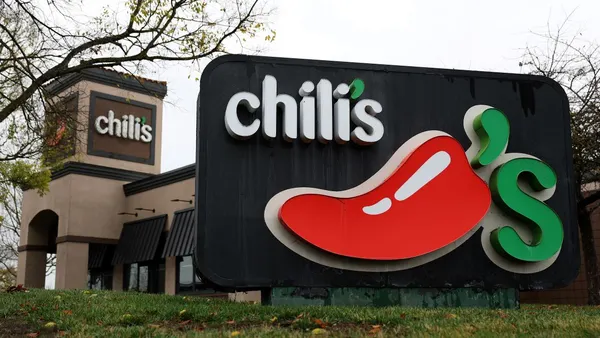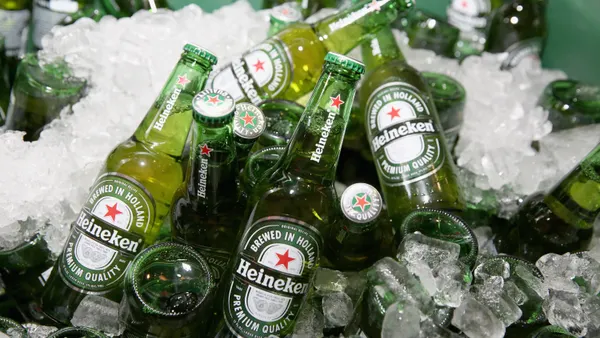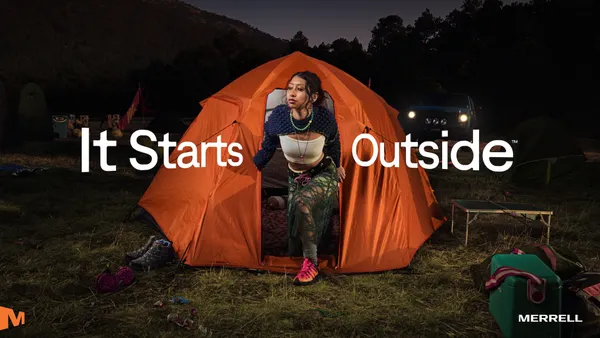Dive Brief:
- Diet Coke has introduced label-free cans as part of an advertising push that challenges stereotypes around class, race, gender and more, and intends to create a "safe and open space" for consumers, according to a page on the company's website. The cans, stripped of any identifying logos, still have a red stripe running vertically over them.
- MediaPost, which first picked up on the "[Unlabeled]"campaign, reported that the packaging play is not a nationwide effort, but appears limited for now to particular events, including some Pride celebrations this month. Diet Coke said that it intends to collect insights from the limited run that will inform the direction of a broader "multi-year" platform around labels, per MediaPost. The company also said that a "manifesto film" will roll out next month to promote the effort, and that it will provide partner resources and safe forums for discussion among online followers.
- The soft drink maker has already released a series of short videos profiling a range of figures who are challenging traditional labels, from a black transgender artist to a Native American woman targeted for being "white-passing." The creative is available to view on some social channels and on YouTube.
Dive Insight:
Diet Coke is the latest brand to broaden the horizons of its diversity messaging to encompass demographics largely underserved by marketers, including transgender, gender fluid and nonbinary people. While the timing of the campaign lines up with Pride month, Diet Coke and sister brands like Coca-Cola have steadily added more inclusivity to their marketing strategies in recent years. An ad Coke ran around the Super Bowl in 2018, for example, featured passing reference to they/them pronouns in recognition of gender fluid consumers — a topic also touched on by the "[Unlabeled]"effort.
Coke brands have deployed label-less products for similar means before. In 2015, Coca-Cola Middle East sold logo-free cans around Ramadan in a bid to combat prejudice. The campaign ran with the tagline, "Labels are for cans, not people," as highlighted in a company press release. Diet Coke is using similar language to launch "[Unlabeled]."
"We're removing our labels to start a conversation about labels," the new website page reads. "By removing our labels, we're pledging to create more space."
As noted by MediaPost, the label-free cans are for now limited to spaces where they might be most accepted, which could lessen potential blowback for Diet Coke. Ads focused on subjects like gender and diversity have become more common as marketers feel greater pressure to address relevant social issues and meet the demands of valuable young consumers like Gen Z and millennials.
But the blending of marketing and politics frequently inspires controversy. Procter & Gamble's Gillette this year created a social media firestorm for commenting on toxic masculinity and the #MeToo movement. A more recent ad from the razor maker tied to the same platform depicted a trangender teen's first shave, and was received more positively, according to third-party sentiment analyses.
Diet Coke last year overhauled its packaging to feature taller, slimmer cans and funkier new flavors, like Blueberry Açai. The move has appeared to pay off at a time when consumer interest in soda and other sugary beverages is waning, as reported in Food Dive, helping to boost sales as parent company Coca-Cola diversifies its portfolio to transform into a "total beverage company."













